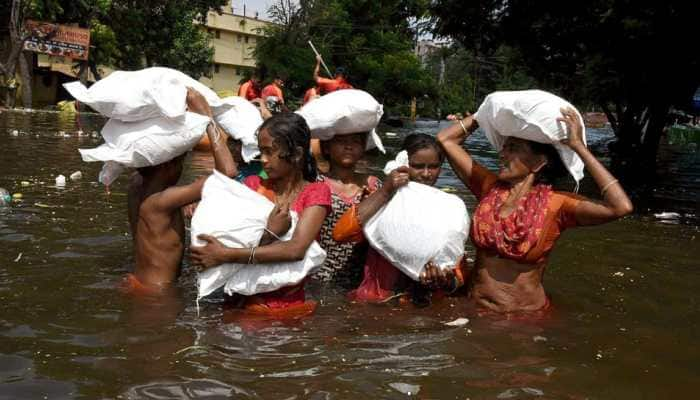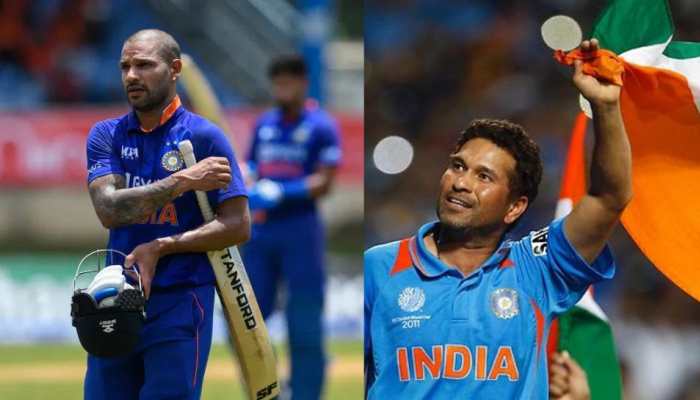Nirmala Sitharaman praises free foodgrain scheme
Finance Minister Nirmala Sitharaman has praised the Pradhan Mantri Garib Kalyan Anna Yojana (PMGKAY) after an International Monetary Fund (IMF) working paper credited the free foodgrain programme for only a 10 basis points rise in extreme poverty in 2020 to 0.86 percent despite COVID.
- As per reports, extreme poverty rose to 0.86 percent in 2020 amid the coronavirus pandemic
- The cabinet had in March extended the programme by another six months
- The government would have spent Rs 3.40 lakh crore on the free foodgrain scheme
Trending Photos
) Finance Minister Nirmala Sitharaman (File Photo)
Finance Minister Nirmala Sitharaman (File Photo) Finance Minister Nirmala Sitharaman has praised the Pradhan Mantri Garib Kalyan Anna Yojana (PMGKAY) after an International Monetary Fund (IMF) working paper credited the free foodgrain programme for only a 10 basis points rise in extreme poverty in 2020 to 0.86 percent despite COVID.
Sharing the IMF paper on Twitter, the minister said, “The working paper notes that the social safety net given to the poor by way of expansion of the country's food subsidy program absorbed a major chunk of the pandemic shock.”
As per reports, extreme poverty rose to 0.86 percent in 2020 amid the coronavirus pandemic because of the free foodgrain scheme, the paper Pandemic, Poverty, and Inequality: Evidence from India said. Extreme poverty was 0.76 percent in India in 2019. The World Bank defines extreme poverty as those living on under $1.9 a day in 2011 Purchasing Power Parity terms.
The cabinet had in March extended the programme by another six months. Launched in March 2020 as the country went into a lockdown to curb the spread of COVID-19, the government would have spent Rs 3.40 lakh crore on the free foodgrain scheme by September to ensure no poor household is left hungry as the economy recovers from the pandemic.
"The expansion of India's food subsidy program rather than increasing cash transfers enabled the government to provide for free food as per the average monthly requirement to all those who were entitled to purchase the same from the PDS (Public Distribution System) system," economists Surjit Bhalla, Karan Bhasin and Arvind Virmani said in the paper.
"Subsequently, the doubling of entitlements in 2020 helped maintain extreme poverty at the low 0.8 percent level," the paper added.
The pandemic shock was largely a temporary income shock, the economists said, adding that the fiscal policy interventions were the fiscally-appropriate way to absorb a large part of the shock.
Stay informed on all the latest news, real-time breaking news updates, and follow all the important headlines in india news and world News on Zee News.
Live Tv







)
)
)
)
)
)
)
)
)
)
